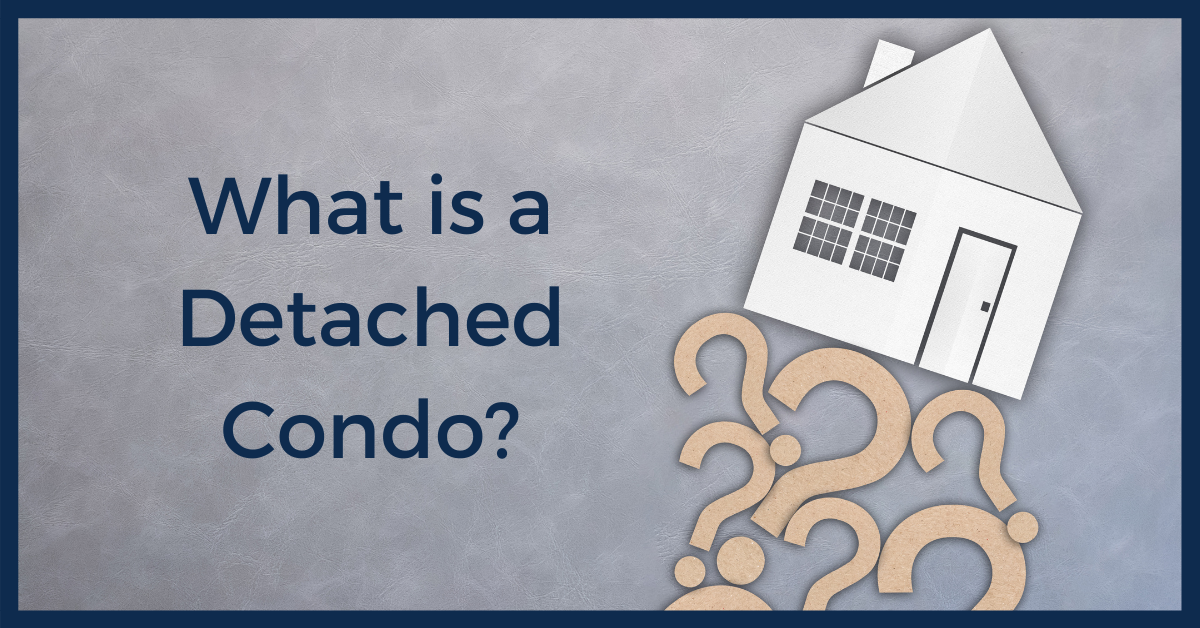If you have done any house hunting around Seattle in the past few years you may have come across a property that feels like a single-family home, but is confusingly classified as a condo. These homes are called “detached condos” and are becoming quite common.
What is a Detached Condo?
Detached condos, also called “free-standing condos” or “ground condos”, have been a development style in planned communities for several years and are increasingly being brought into cities as infill construction. Detached condos are a way to gently add density to neighborhoods that have historically only had single-family homes. In general, the main difference between traditional single-family homes, and detached condos is that these homes have a Homeowner’s Association (HOA) and Codes, Covenants and Restrictions (CC&R’s). The HOA and CC&R’s will help to protect the new owners’ investment in the long run, as their property and neighboring properties will be well maintained.
What Does the HOA Cover?
The HOA will typically be jointly managed by the homeowners, though they have the option to hire a management company if they choose. When the HOA is established there will be several documents created including a Public Offering Statement, HOA Bylaws, and a Property Map. The Condo Documents will identify the rules and boundaries of the detached condo units. All of these documents should be available to buyers before they put in an offer on the home.
Typically, the HOA dues on detached condos are very small and only cover very basic items. The Budget should outline the initial HOA fees for each homeowner. If they choose, the homeowners can elect to share additional expenses such as utilities, yard maintenance, etc. that are not pre-determined in the Condo Documents, through the HOA.
What Do I Actually Own?
Ownership of these homes is very similar to ownership of a traditional single-family property. Each homeowner owns their entire structure as well as their individual parcel unit as described in the Condo Declaration. Each unit will have a separate Tax ID Number and the homeowners will only pay the taxes as assessed for their individual parcel and unit. Additionally, any land between each unit parcel, if any, is considered common space, which may consist of driveways or walkways.
Just like with a single-family home, each homeowner is responsible for the maintenance of both the interior and the exterior of their own property, which includes the land within their designated parcel. Any interior updates or changes are fully up to the discretion of each homeowner, though decisions that would change the exterior of the home will typically need to be agreed upon with the other HOA member(s).
What About Utilities?
With detached condos, there may be some shared utilities such as water and gas, that can either be paid jointly through the head of the HOA, or separately metered by a third-party company if the homeowners decide to go that route. Typically, electricity will be separately metered to each unit, though depending on how the property was built, this may also be a shared utility. This is another item that will be explained in the Condo Documents.
In most circumstances, detached condos are extremely similar to single family homes, with only very minor differences. Each owner owns the home and the land within their own parcel and is responsible for taking care of both the interior and exterior of their own property. Savvy buyers are finding detached condos to be a great way to gain access to unattached homeownership through this type of property purchase.
 Facebook
Facebook
 X
X
 Pinterest
Pinterest
 Copy Link
Copy Link
